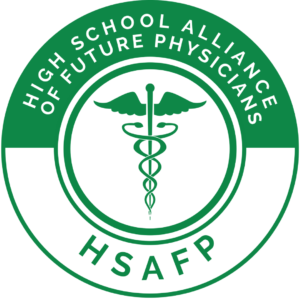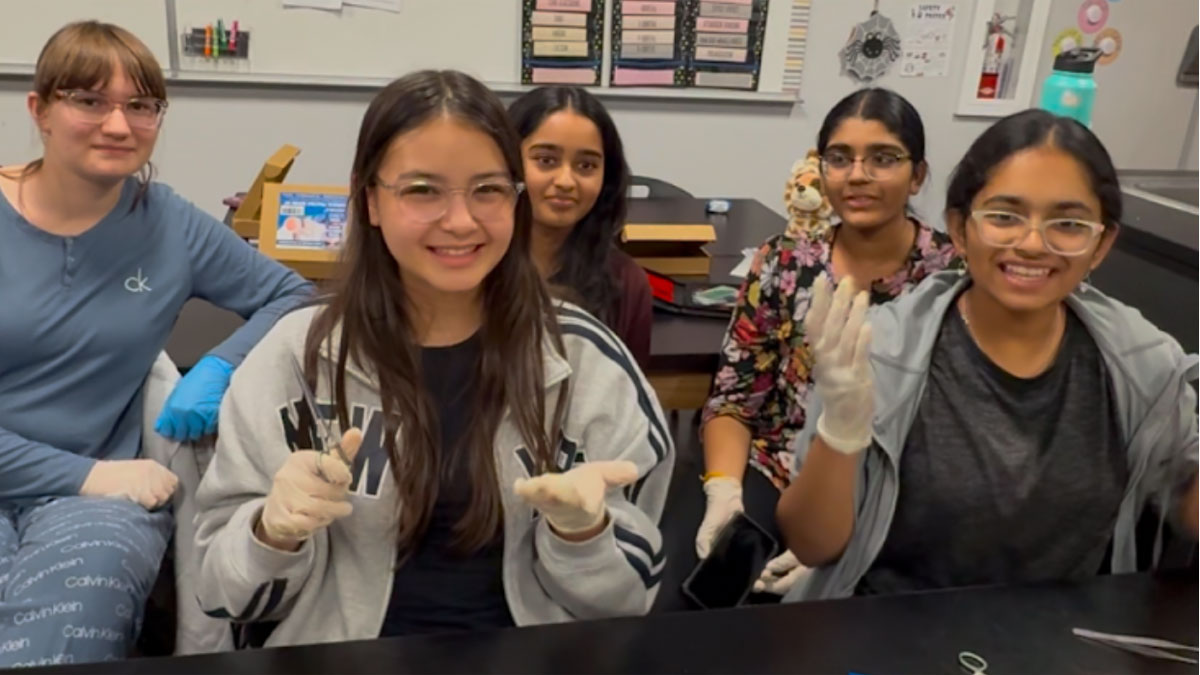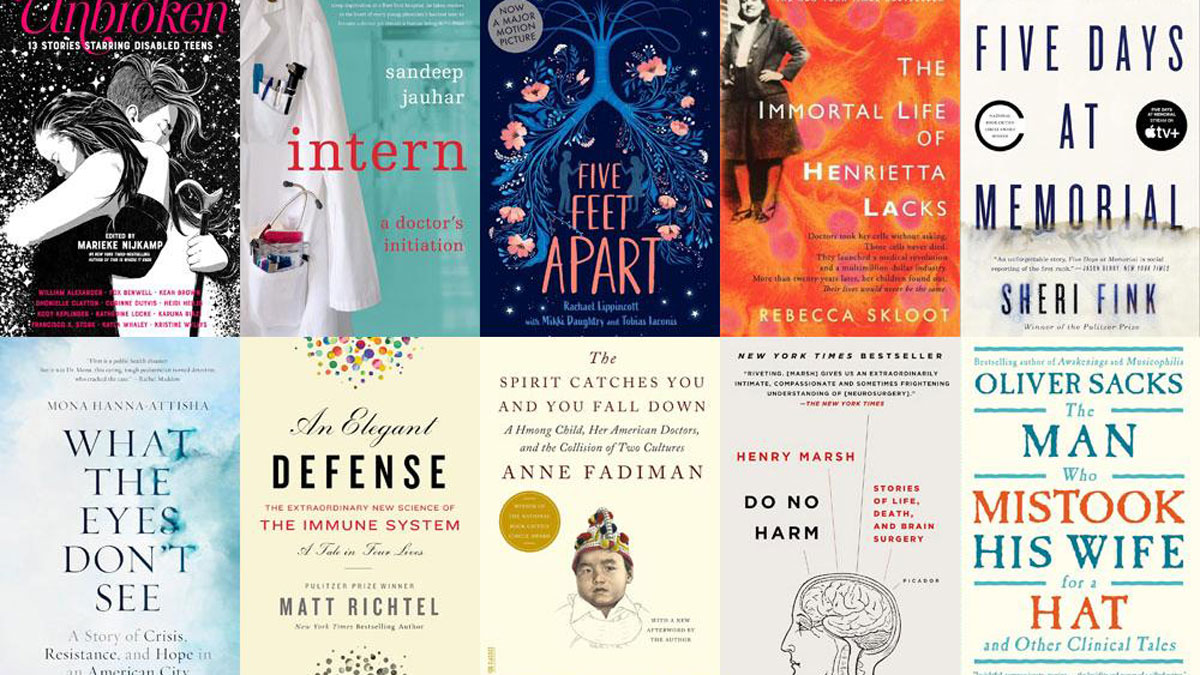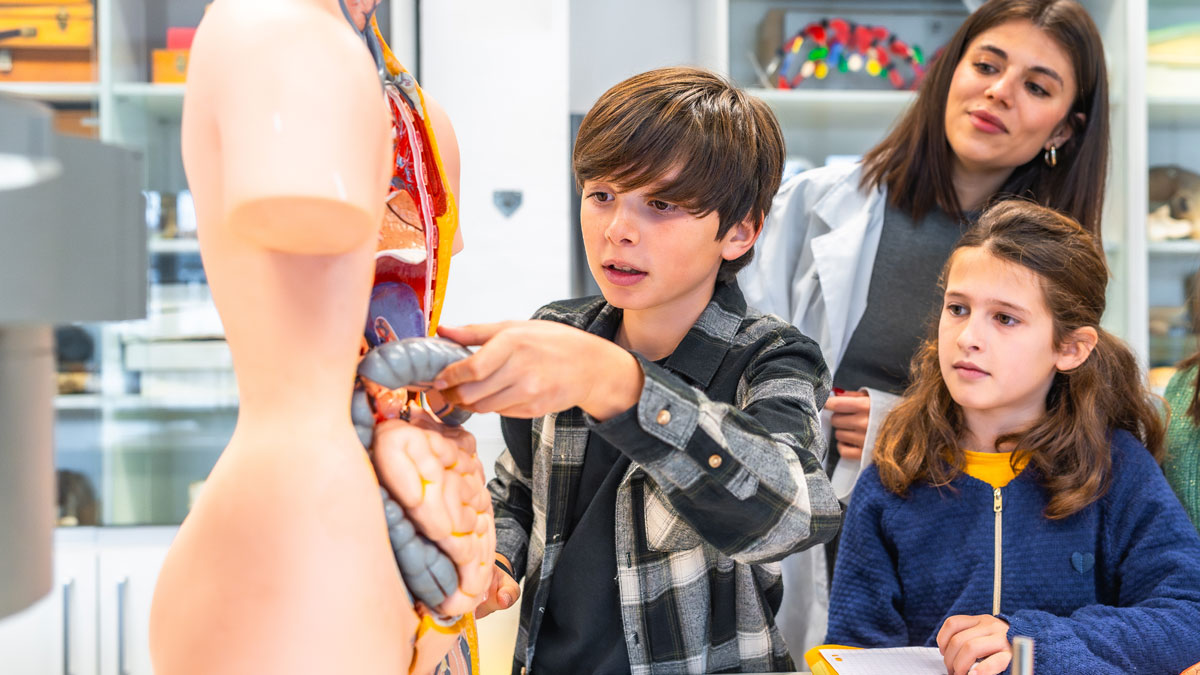The Best High School Courses & Activities for Pre Med Students

Dr. Hillary Weiss

If you’re a high school student dreaming of becoming a doctor, you might be wondering how to prepare for pre-med in high school. The good news is you can start laying the groundwork right now!
This article will walk you through everything you need to know, from high school classes for future physicians to the best extracurriculars for pre-med students.
What is “Pre-Med”?
Being “pre-med” in college means you’re planning to apply to medical school. There’s no specific pre-med major. Instead, students take required classes like biology, chemistry, and physics, often alongside their chosen major, whether that’s neuroscience, public health, or even English or History.
See the best premed majors in an article posted by MedSchoolCoach.
Medical schools expect strong academic performance, especially in science and math. They also want to see that you’ve explored the field through shadowing, volunteering, research, or medical clubs.
Getting a head start in high school helps you succeed in those challenging college courses and figure out whether medicine is truly right for you. Download the MedSchoolCoach guidebook, The Pre-Med Journey: A Free Guidebook for High School Students, for more thorough information on navigating the journey to a career in medicine.
The Best High School Classes for Future Physicians
Your high school course selection matters. It can prepare you for success in college and help you stand out on applications.
Core Science Courses
- Biology: Introduces key concepts like cell structure, genetics, and physiology.
- Chemistry: Teaches how substances interact, which is vital for later courses in organic chemistry and pharmacology.
- Physics: Covers topics like motion and energy, and helps with understanding technology used in medicine.
These three science classes are the foundation of most pre-med requirements.
Advanced Science Options
- AP or IB Biology, Chemistry, Physics: Challenge yourself and possibly earn college credit.
- Anatomy & Physiology: These courses will provide the foundation for and a preview of what you’ll learn in medical school.
- Psychology or Sociology: Both fields are crucial to understand more about patient behavior, cultural humility, and social determinants of health.
Math Courses
- Algebra and Geometry: Foundational math needed for the MCAT and beyond.
- Pre-Calculus and Calculus: These courses are typically needed for college chemistry and physics.
- Statistics: Helps with interpreting medical research and data.
In particular, AP Calculus and AP Statistics are both recommended if your school offers them.
Communication and Critical Thinking
- English Literature, Writing, and Rhetoric: Build skills in reading, writing, and analysis, which are crucial to apply to medical school, learn empathy from putting yourself in other people’s shoes, and publish medical research.
- Public Speaking or Debate: This course (and extracurricular!) boost your confidence in your clear communication skills and develop your analysis skills.
- History: Increase your understanding of how the world works, cultural awareness, ethical reasoning, critical thinking, and writing skills by taking history courses.
Languages Other Than English
- Spanish: In the U.S., Spanish is one of the most useful languages to learn to serve patients effectively.
- French: If you are planning to practice medicine in Canada, learning French is essential.
- Other Languages: Learning another language may help you connect with your roots, help international patients, and better serve patients here in the U.S.
If your school offers four years of a language, stick with it—fluency takes time!
Health and STEM Electives
- Medical Terminology: Teaches the sometimes difficult language and acronyms of healthcare.
- Computer Science: Growing in importance in digital health and medical research.
- Biotechnology: A great introduction to lab work.
Check with your school to see if there are partnerships with local hospitals or CTE programs.
Advanced Programs: AP, IB, and Dual Enrollment
Taking the most rigorous classes available to you shows commitment and helps you prepare for college.
- AP Biology or Chemistry: These courses can simulate a college-level science experience.
- IB Higher Level Sciences: Great prep for international students or those in IB schools.
- Dual Enrollment: By dual enrolling, you will simultaneously take your high school courses and take classes at a local college. This can be a great option if your school doesn’t offer AP courses or if you want to explore topics your school may not offer, like medical ethics or epidemiology.
Ask your school counselor how you can challenge yourself without becoming overwhelmed.
Best Extracurriculars for Pre-Med Students
Outside the classroom, your activities give colleges insight into your values and interests. Here’s where you can start:
Volunteering
- Hospital or Clinic Volunteering : Many hospitals have junior volunteer programs for teens.
- Community Health Events: Help with vaccine drives, blood donation events, or public health campaigns.
Consistent service shows dedication. See our curriculum, specifically our non-clinical volunteering course, for more information!
Shadowing a Doctor
Shadowing lets you observe what it’s like to work in medicine. Finding these opportunities can take effort, but it’s worth it.
Start by asking your own doctor or using connections from school or family. When you reach out, be polite and explain your interest. Don’t be afraid to reach out to them again if they don’t respond. Doctors are busy!
If in-person options are limited, you can participate in HSAFP’s curriculum and view the MedSchoolCoach Virtual Shadowing Program to watch practicing physicians talk through patient cases.
Science Research and Competitions
- Science Fairs: Seek out local and national competitions recommended by your guidance counselor and teachers.
- Research Internships: Some hospitals and universities offer summer programs for high school students. For more information about research opportunities and alternatives, see the HSAFP Research Course for high school students.
- Biology or Chemistry Olympiads: These activities are of course competitive but excellent enrichment.
You can also design your own research project with guidance from a science teacher.
Science or Medical Clubs
- Science Olympiad: Covers biology, chemistry, and lab skills.
- HOSA – Future Health Professionals: Offers medical competitions, leadership roles, and conferences.
- AMSA (American Medical Student Association): Some regions offer high school chapters or partnerships with youth pre-med groups.
- HSAFP (High School Alliance of Future Physicians): Offers students the chance to connect with peers, learn from healthcare professionals with our curriculum—updated monthly—and gain access to valuable pre-med resources. Starting a chapter at your school is a great way to lead and grow a health science community.
Leadership and Communication
- Student Government: Builds teamwork and advocacy skills.
- Peer Mentoring or Tutoring: Reinforces your knowledge and shows you care about others.
- Other Unique Opportunities: Are you passionate about seeing and preserving nature? Do you dabble in sports or in the arts? Or maybe you love video games? Seek a leadership or competitive role to showcase your talents!
Both undergraduate and medical school admissions committees are looking for students who show initiative, not just participants. Be a leader!
Summer Opportunities
Use your summers to build experience and grow personally.
- Medical Camps: Many universities host medical camps, including Stanford’s Clinical Anatomy Summer Program or Georgetown’s Medical Institute.
- Volunteering: Without school in the way, you can commit more hours to serving your community!
- Certifications: First Aid, CPR, or even EMT training (if you’re old enough!).
- Online Courses: Take a university online course and review HSAFP’s curriculum, found on Connect.
You’ll want to plan ahead, as many of these programs have early deadlines.
How to Balance Your Coursework & Extracurriculars
Taking tough classes and staying involved can be very overwhelming. Here’s how to manage:
- Choose What Matters: Focus on a few meaningful activities that are related to your goals as a future physician, not dozens of minor ones.
- Use a Planner and Other Tools: Organization is essential. Make sure to keep track of assignments and tests, club meetings, and other important dates wherever you will remember them!
- Schedule Downtime: Your health matters. Make time for sleep, exercise, hobbies, and your family and friends.
- Get Help When Needed: Struggling with chemistry? Ask a teacher or find a tutor.
Balance will help you sustain your efforts long-term.
Your Next Steps
Preparing for a future in medicine takes work, but starting in high school puts you ahead of the game. Take the most rigorous classes you can handle, get involved in meaningful activities, and build relationships with mentors who can guide you.

The High School Alliance of Future Physicians
Are you interested in becoming a Pre-Med student?
If your school doesn’t already have a support system for future doctors, consider joining an HSAFP chapter. It’s a great way to meet like-minded peers and get access to helpful resources!
Recent Articles






